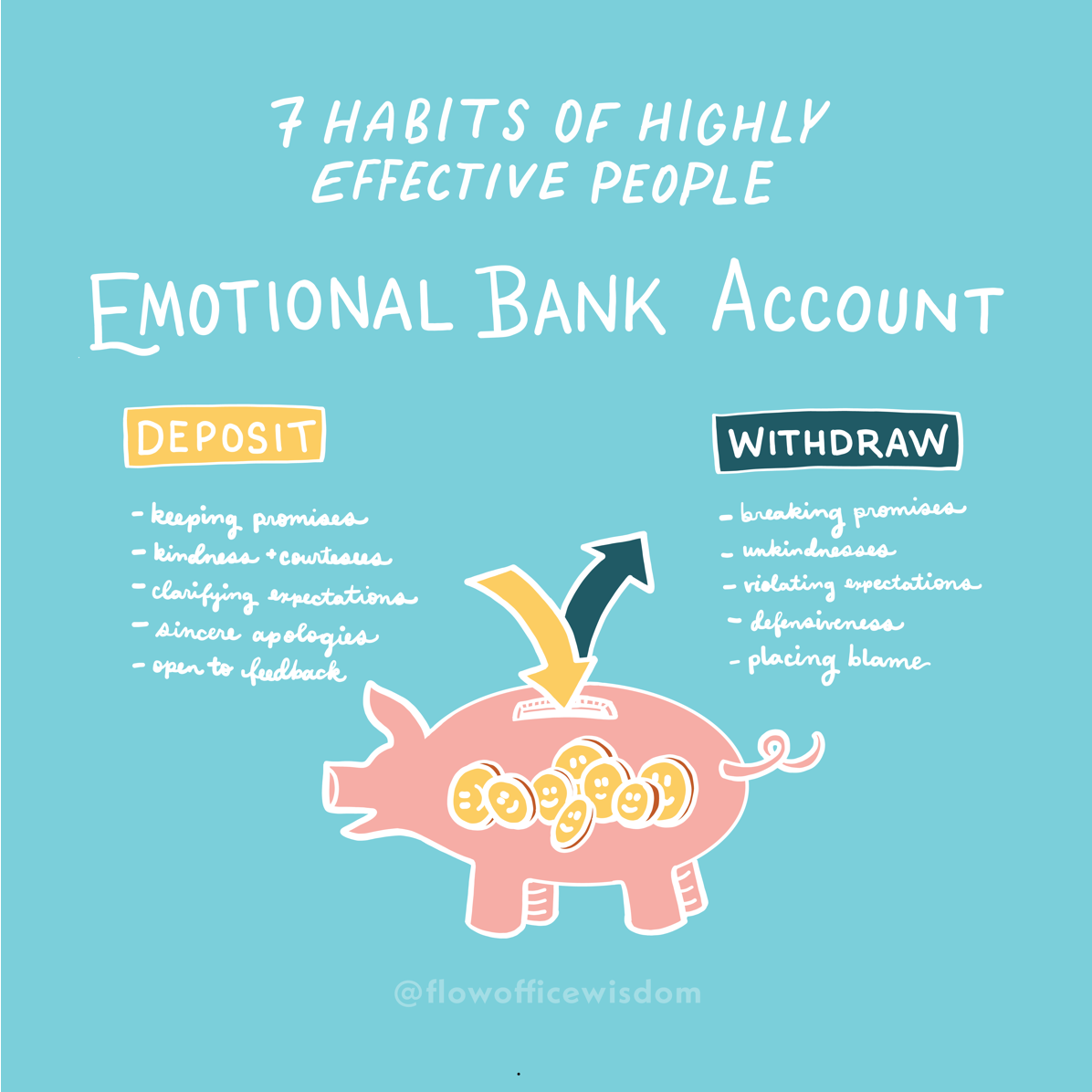1
Building relationships
Building relationships
Content
What is an emotional bank account?
We all know what a bank account is, right? You can deposit money and you can withdraw money. And when you have enough money in your bank account you feel most probably financially good and safe. Steven Covey, in his book 7 Habits of Highly Effective People speaks about an emotional bank account. And with this he means that you can withdraw and deposit to an imaginary emotion bank account.

How does an emotional bank account work
In a relationship you can make deposits by e.g. being kind, honest, giving compliments and keeping commitments.
6 major deposits:
- Understanding the other
- Attending to the little things
- Keeping commitments
- Clarifying expectations
- Showing personal integrity
- Apologizing sincerely when you make a withdrawal
Withdrawing from the emotional bank account is natural. Examples are being bossy, assuming that you understand, breaking commitments, rejecting feedback.
What are the advantages from an emotional bank account
When you build up a reserve in a relationship, it is expected that, when something goes wrong you still have a deposit to use from the other person. So when you forget an appointment, couldn’t deliver something you promised, needed to make time for someone else, then the other person most likely understands and is still aware of your good intention.
Of course an emotional bank account doesn’t only work for relationships. It is also very good to have a personal bank account, where you keep promises to yourself, clarify for yourself what your values and needs are and follow them. Instead of living in stress, eating too often fast-food, and not keeping promises to yourself.
Participants of this activity can earn badges that connect to Global Youth Skills competence framework from Institute for the Future, specifically the skills zones:
- Build your Crew
- Make sense
This activity is the opportunity to get your learning acknowledged with open badges that are recognised and used globally.
Pridobite značko aktivnosti
Building relationships Pridobi to značko
The holder of this badge has worked independently and/or in a collaboration with peers at Building relationships which connects with the skill zones: Build your Crew and Make sense of the Global Youth Skills competence framework from Institute for the Future.
Evidence included in this badge showcases how the holder of this badge worked on these skills. International youth work trainers and local youth workers assessed the evidence submitted for earning this badge.
Naloge
Naloga št.1
Dokaze preveril: En organizator dejavnosti
1. Show 5 ways that you could do to make a difficult relationship better.
2. Show 5 ways that will not be helpful to maintain a good relationship.
Veščine
ESCO
#spodbujati duševno zdravje
ESCO
#udeleževati se športnih treningov
ESCO
#spiritualizem
ESCO
#izkazovati socialne kompetence
Organizatorji
Cities of Learning Network
Badge issuer recognized with
Uporabljeno v seznamu predvajanja
Leadership in relation with others
Cities of Learning NetworkUstvarjeno na Global platform for Cities of Learning
Preklopite na drug jezik:

